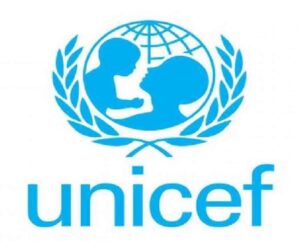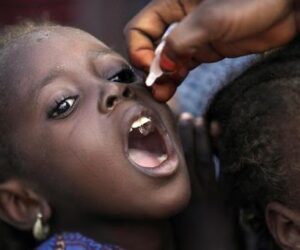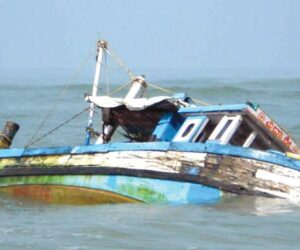In the dimly lit ward of the Unguwa Uku Primary Health Care Centre in Kano, the weak cry of a toddler pierces the air, a haunting reminder of Nigeria’s deepening hunger crisis. The tiny body of two-year-old Rahama lies in a hospital bed, a feeding tube taped to her fragile arm. Around her, dozens of other children — thin, listless and fighting to survive — share the same fate. Their parents hover helplessly, clutching hope like a lifeline in a country where food has become a luxury.
Across Kano and Maiduguri, families are grappling with hunger-induced malnutrition, a growing tragedy in Africa’s most populous country. As the cost of food continues to soar and insecurity ravages farmlands, parents are left with painful choices: eat less or watch their children waste away.

SPONSOR AD
The rising wave of hunger
Families and victims of hunger-induced malnutrition in Kano and Maiduguri have shared their harrowing experiences as Nigeria battles one of its worst humanitarian crises, marked by hunger, poverty and severe malnutrition.
Analysts suggest that this development may be linked to recent reports by the World Bank on the country’s poverty situation. According to the Nigeria Development Update released by the World Bank in October, 139 million Nigerians were living in poverty as at 2025. The figure, however, has been disputed by the federal government, which insists that its economic reforms are yielding positive results.
Available statistics show that more than 30 million Nigerians are at risk of extreme food shortages. Rising food prices, insecurity, climate change, and cuts in foreign aid have left millions sleeping on empty stomachs. This deepening hunger crisis has led to widespread malnutrition, with hospitals overwhelmed by children competing for bed spaces while health care workers struggle to cope.
Beyond food shortages, millions of Nigerian children lack adequate nutrients and vitamins. According to the United Nations Children’s Fund (UNICEF), about two million children in Nigeria suffer from severe acute malnutrition.
To ascertain the scale of the crisis, Weekend Trust gained exclusive access to malnutrition treatment centres supported by Doctors Without Borders (Médecins Sans Frontières, MSF) in Kano and Maiduguri, where it observed victims of malnutrition in both urban and rural areas and spoke with caregivers.

The Kano ordeal
At the Kano centre in Sabon Gari, a 38-year-old Mustapha Ismail’s two-year-old daughter, Rahama, is battling malnutrition. He visits her at the Unguwa Uku Primary Health Care Centre, also supported by MSF.
Before Rahama’s admission, her parents had visited four different health centers — all of which were full. It took a week before they found a bed at the Unguwa Uku Primary Health Care Centre. The facility, originally designed for 120 patients, now accommodates 200 children — far beyond its capacity.
The ward where two-year-old Rahama receives treatment is overcrowded. Two mothers and their babies share a single bed space, making the already stretched facility even more congested. Rahama now depends on oxygen and therapeutic milk to survive. It was her sixth day in the ward. Doctors say she is recovering, but her mother, Rukayya Ibrahim, fears the family may not be able to afford the recommended diet after she is discharged.
“Before now, we could afford nutritious meals like beans, fish or meat. We used to get plenty, but life has changed. I am appealing to the government to help. Truly, the poor are in a difficult situation. Nowadays, a child can’t get nutritious meals,” she said.
Father’s income can’t provide healthy meals
Weekend Trust also spoke with Rahama’s father, Mustapha, who repairs bicycles in the market. The job brings in little, and most days, he struggles to stay afloat. His family survives on less than one dollar a day — one of millions living below the poverty line.
Mustapha’s income cannot provide a balanced diet, and meals are often starch-heavy, lacking basic nutrients. Speaking on a Tuesday afternoon in Kano’s Sabon Gari area, the 38-year-old said that with prices soaring, he could only afford half a mudu of rice, which is barely enough to feed his wife and three children.
“Because of the high cost of living, even when I sell my goods, I can’t make new orders to replace what I sold, not even a single bicycle tyre. I used to earn N2,500 daily, but now, I earn only N1,500, and even that is not consistent. We can’t afford to buy meat because of our low income. If I earn a little above my daily average, I buy two oranges — they make four slices. I take two and give the rest to my wife and children to share,” he lamented.
Other mothers at the facility shared heartbreaking stories of how food shortages have led to the malnourishment of their children amid the rising cost of living in the country.
A mother who identified herself simply as Hauwa said doctors had prescribed nutritious meals for her baby to gain strength after discharge, but she worried that the family could not afford them due to poverty.
“To be honest with you, I can’t afford to buy some of these food items because of financial constraints. My husband and I are poor, and we have children to cater for. I normally feed my babies with akamu until I wean them. If I experience a shortage of breast milk, I also take akamu,” she said.
Lantana Jibrin, another mother, is caring for her two-year-old daughter, Shema’u, who has been battling malnutrition. It is their 13th day at the Unguwa Uku Primary Health Care Centre. “I feed my daughter with swallow, rice and spaghetti. I can’t afford to buy meat or fish for her,” Lantana said.
Doctors speak as 26,000 malnourished children treated in Kano
Dr Arinze Osigwe, the medical activity manager in charge of MSF’s medical operations at the Unguwa Uku Primary Healthcare Centre, shed light on the organisation’s ongoing efforts to treat malnourished children at the facility. He said many mothers trekked long distances to seek help for their starving children.
“There was a case of a child brought by her mother who had travelled a very long distance because she didn’t have money. And she trekked for most of the journey. It took her two days to get to our facility. The child had been sick for two weeks and was severely acutely malnourished. When she arrived, there was really nothing we could do to save the child. It was a very painful period for us,” he said.
A nursing team supervisor, Nasir Muhammad, who provided estimates of the facility’s daily admission rate, noted that hunger and malnutrition were inseparable.
“In the last three months, we have had an increase in patients. Last week alone, we admitted about 1,000 cases of malnutrition here at the Unguwa Uku PHC. Hunger directly leads to malnutrition. If there isn’t enough food,
it could result in malnutrition. Malnutrition has to do with two things: quantity and quality. The quantity of food needs to be adequate, and the quality needs to be balanced. Eating the right quantity and quality of food is what helps. Hunger eliminates both — if there is no food, it is neither adequate nor nutritious. So yes, there is a direct relationship between hunger and malnutrition,” he said.
MSF runs five centres in Kano. Between January and August 2025, the organisation treated over 26,000 malnourished children in outpatient care and admitted 5,533 for intensive treatment. Sadly, 469 children did not survive.
According to the World Food Programme (WFP), 30.6 million Nigerians currently face acute food insecurity. Kano, the most populous state in northern Nigeria, is among the worst affected. The United Nations Children’s Fund (UNICEF) reports that 51.9 per cent of children in Kano are stunted due to chronic malnutrition.

Many initiatives developed to tackle malnutrition – Kano govt
In an interview with Weekend Trust, the Kano State Commissioner for Information, Ibrahim Waiya, said the state government had rolled out several programmes to address malnutrition and hunger.
He said, “Many initiatives have been developed and implemented to address malnutrition and hunger in Kano State. Apart from the recent intervention of about N500 million set aside to tackle the problem, one of the outcomes of our efforts so far includes the development of the Food and Nutrition Policy (2025–2030), a five-year plan dedicated to combating malnutrition. We cannot fight poverty or hunger when people are not empowered. That’s why, every month the state government under the leadership of Governor Abba Kabir Yusuf, provides empowerment support funds for 5,200 women.”
Cut foreign aid worsens hunger, malnutrition in Maiduguri
Our reporters also visited facilities in Maiduguri, the Borno State capital, where malnourished children are receiving treatment. An estimated 4.6 million people in Borno, Adamawa, and Yobe states — all in the North-East geopolitical zone — are at risk amid escalating food shortages in Nigeria. Armed conflicts and climate change have further exacerbated the crisis in the region.
The situation is particularly dire in Borno State. After 16 years of insurgency, poverty and hunger have deepened as many residents walk the streets of Maiduguri in search of food.
At MSF’s hospital in Maiduguri, dozens of children are treated daily for malnutrition. Among them is 20-year-old Khadija Abubakar, who cares for her 22-month-old daughter, Fatima, diagnosed with severe malnutrition.
“They said my daughter is malnourished; it is a hunger-related disease. No one would want to go hungry if he has the means to prevent it. Today, if you have something to eat, you will eat until you are satisfied. But if you don’t have it, even if you want to, you must endure,” she said.
Borno State has one of the highest rates of malnutrition in the country. The hospital has expanded its bed space to meet growing demand. Between January and September 2025, 9,335 malnourished children were admitted across MSF-supported facilities in Maiduguri. Within the same period, 8,946 patients were discharged.
Dr Muhammad Bashir, the medical activity manager at the MSF hospital in Maiduguri Metropolitan City, described how they have managed the influx of patients thus: “On average, before this surge in admissions, we discharged more than 97 per cent of our patients monthly. More than 97 per cent of them recover here and are moved to the outpatient unit, where they continue receiving therapeutic food for four to six weeks before full discharge. But in the last two months, the discharge rate has dropped slightly between 95 and 96 per cent, meaning that 3 to 5 per cent of patients unfortunately die here.”
Borno govt speaks
Speaking on the crisis and the state government’s response, the executive secretary of the Borno State Agency for Coordination of Sustainable Development and Humanitarian Response, Dr Babakura Mamman, said farmers were receiving necessary support and security escorts to their farmlands. He said vehicles were also provided to transport farmers, a move that has improved security and agricultural output.
He said, “In previous years, we witnessed serious food insecurity in this part of the country. But the level of farming has now increased from a very minimal percentage to at least 70 to 80 per cent.”
In early 2025, the United States cut 92 per cent of USAID funding to Nigeria. The United Nations also reduced its humanitarian budget from $910 million to $300 million, leaving a $610 million shortfall.
Experts say these cuts — compounded by climate change and the removal of fuel subsidy in 2023 — worsened food insecurity across northern Nigeria. Dr Mamman highlighted the devastating impact of foreign funding cuts on vulnerable communities.
“Funding cuts mean fewer children getting food and fewer mothers accessing the health care support they need. Millions of people will be affected, especially in regions with large displaced populations. Many partners and non-governmental organisations have scaled down or even closed their operations in local areas, where the most vulnerable people are found,” he said.
Impact on IDPs
A 70-year-old Kakaja Kolo lost everything when Boko Haram attacked her village in Jere 13 years ago. Since then, she has lived as a refugee in Maiduguri, surviving on street begging. With rising cost of living and cuts in aid to internally displaced persons (IDPs), life has become unbearable. At the end of each day, Kakaja returns to her makeshift shelter in Bulabulin after the closure of formal IDP camps.
Her story mirrors that of thousands who now struggle to survive amid deepening poverty and hunger.
“I must beg for alms to survive. I have three children — one is blind, another crippled and the third jobless. I used to live with my grandchild in a village under Jere Local Government Area before Boko Haram attacked with heavy weapons. We fled to Maiduguri. After the IDP camps were closed, a man sheltered us,” the elderly woman recounted.
At Almiskin IDP camp, residents said they had not received food aid in over two years. The state government has shut all official camps, focusing instead on resettlement. A 50-year-old Muhammad Aji, a father of 9, said he had not eaten since the previous day.
“As at now, we don’t have anything to cook. Without Allah’s intervention, we can’t light fire in our kitchen. And there are many of us in this situation. We used to do menial farm work, but men can’t go out anymore. Once a man goes to the bush, Boko Haram will kidnap him and demand ransom — sometimes N4 million. They recently kidnapped our brother and are demanding N7 million. Where can we get N7 million? If we even had N100,000, we could start a business. Now, only the women do petty trading – selling vegetables to raise money to feed the family,” he said.
We’re rolling out interventions – FG
Meanwhile, the Federal Ministry of Humanitarian Affairs and Poverty Reduction says it is working with state governments to tackle the crisis. In an exclusive interview with Weekend Trust, the Minister of State, Dr Yusuf Tanko Sun, said President Bola Tinubu was deeply concerned about the scourge of hunger and malnutrition in the country.
“We have key programmes addressing hunger, poverty and job creation. Once you employ an individual, you have given him a means of sustenance — he can work and feed himself. Under the Social Investment Nets programme, the president’s ambition is to reach 15 million vulnerable Nigerians with conditional cash transfers of N25,000 each in three tranches, totaling N75,000. As at today, over 8.1 million Nigerian households have received the first, second or third tranches — totaling N340 billion expended,” the minister said.
Asked about government’s measures to curb malnutrition, Dr Yusuf said President Tinubu had approved a special intervention.
“The president has given his support for an intervention that will provide supplements, high-nutrient food, medications and related assistance. We are working to ensure equitable distribution, especially in 11 states with high incidents of severe acute malnutrition and displacement. For instance, the Economic Community of West African States (ECOWAS) will soon make over $2 million available to support food supply, including highly nutritious food for children suffering from severe acute malnutrition,” he added.
As Nigeria confronts its deepening economic and food crisis, the human cost continues to mount in hospital wards and forgotten communities. For parents like Mustapha and Rukayya, hope is the only thing they can still afford — and even that is growing thinner by the day.
Watch out for its documentary on Trust TV tomorrow, Sunday, October 26, 2025, at 7:30 pm.








